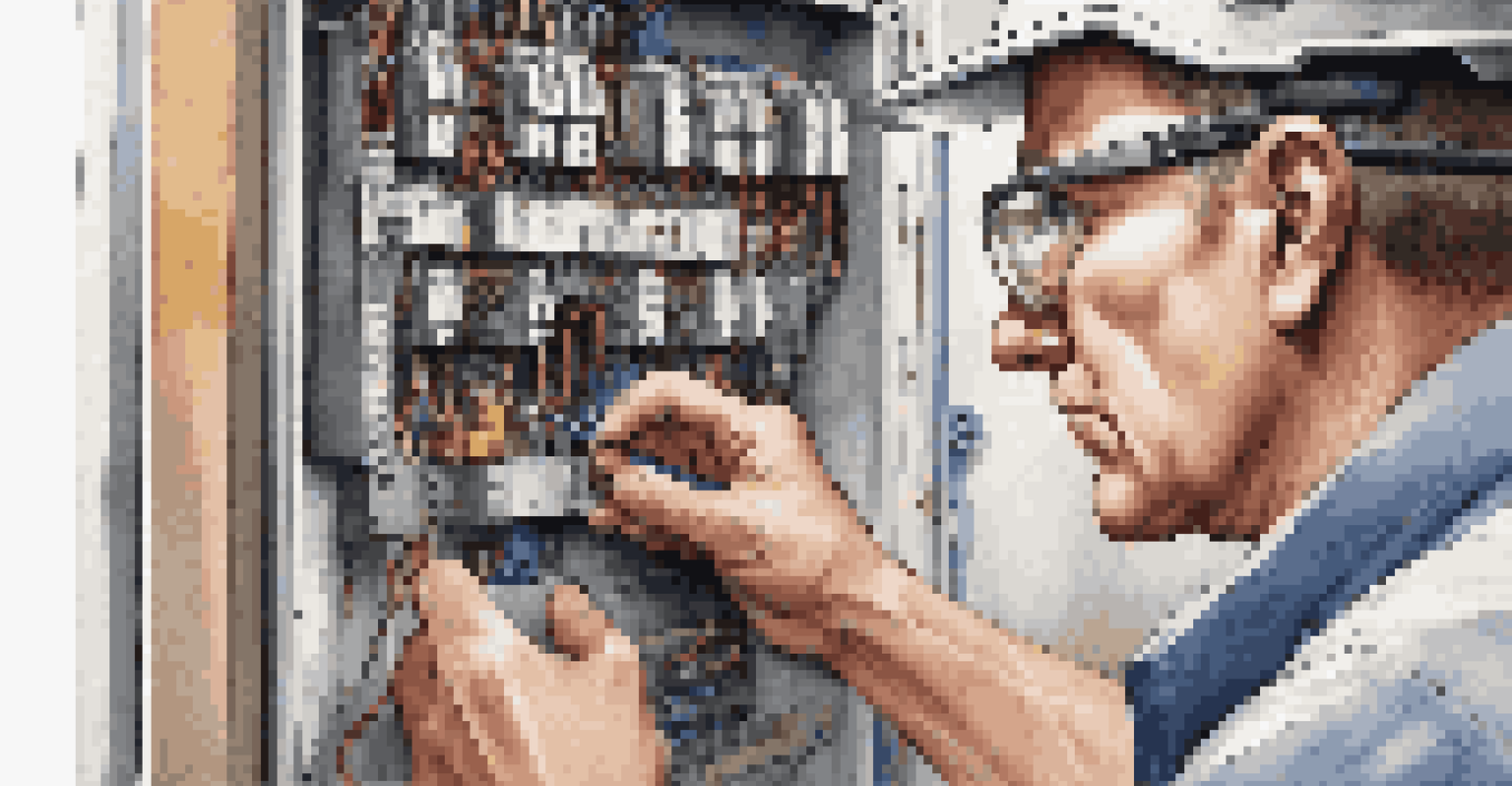The Impact of Inspection Findings on Home Insurance

Why Home Inspections Matter for Home Insurance
Home inspections play a crucial role in determining the insurability of a property. These inspections reveal vital information about the condition of the home, which insurers use to assess risk. If significant issues are found, they can lead to higher premiums or even denial of coverage.
An ounce of prevention is worth a pound of cure.
Think of a home inspection as a report card for your house. Just as grades can impact your eligibility for certain scholarships, inspection findings can influence your access to affordable insurance. Insurers want to mitigate risks, and a well-maintained home is often viewed as a lower risk.
Ultimately, a thorough inspection can provide peace of mind, knowing that any potential issues are documented and addressed before they affect your insurance. It's worth investing in a solid inspection to avoid unexpected costs down the line.
Common Inspection Findings Affecting Insurance Rates
Several common issues can arise during a home inspection that may affect your insurance costs. These include problems like outdated electrical systems, plumbing issues, and even the presence of mold. Each of these findings signals potential future claims, prompting insurers to adjust their rates accordingly.

For example, if an inspector finds that the roof is nearing the end of its lifespan, insurers might consider this a red flag. They could either raise your premium or require you to replace the roof before they agree to cover your home. This kind of proactive measure helps protect both the homeowner and the insurance company.
Home Inspections Influence Insurance
The condition of a home, revealed through inspections, directly impacts insurability and insurance premiums.
Being aware of these common findings can help homeowners take preventive steps. Addressing small issues before they escalate can lead to better insurance rates and a more secure home overall.
How Inspection Findings Influence Coverage Options
Inspection findings can significantly influence the coverage options available to homeowners. If serious issues are detected, insurers may offer limited coverage or exclude certain aspects of the home from the policy. This means that while you might still get insurance, it might not cover everything you need.
Home is not a place, it's a feeling.
For instance, if a home has a history of water damage, an insurer might exclude flood damage from coverage. Homeowners should be aware of these limitations to avoid unpleasant surprises when filing a claim. Understanding the full scope of your coverage is essential for financial planning.
In some cases, homeowners may need to invest in repairs to secure comprehensive coverage. While it might seem daunting, addressing these findings can ultimately lead to better protection and peace of mind.
The Role of Pre-Insurance Inspections
Pre-insurance inspections are becoming increasingly popular among homeowners looking to secure the best rates. These inspections, conducted before you apply for insurance, can identify issues that might raise red flags for insurers. By addressing these problems in advance, you can potentially lower your premiums.
Consider it like a dress rehearsal before a big performance. By preparing ahead of time and ensuring everything is in top shape, you set yourself up for success. A pre-inspection can highlight areas needing attention, allowing you to make repairs and demonstrate your commitment to maintaining the property.
Address Issues for Better Coverage
Fixing common inspection problems can lead to lower insurance rates and more comprehensive coverage options.
Additionally, presenting a clean inspection report to insurers can help you negotiate better rates. This proactive step can not only save you money but also enhance your overall homeownership experience.
Navigating Insurance Claims After Inspection Findings
When it comes to filing insurance claims, inspection findings can have a lasting impact. If a claim is related to a problem that was noted in the home inspection, the insurer may scrutinize the claim more closely. This can lead to delays or even denial of coverage if the issue had been previously identified.
For example, if an inspector notes that the foundation has cracks and later, you file a claim for foundation issues, the insurer may argue that you were aware of the problem. This highlights the importance of addressing any findings as soon as possible, ensuring that you’re not left in a difficult situation later on.
Understanding this connection can help homeowners strategize when dealing with insurance. By keeping records of inspections and repairs, you can provide evidence that you took necessary steps to manage your home’s condition.
The Importance of Regular Home Inspections
Regular home inspections are key to maintaining not only your home but also your insurance coverage. Just as you would take your car in for routine maintenance, your home deserves the same attention. Regular checks can help catch issues before they become significant problems, potentially saving you money on insurance.
Think of your home as a living entity that requires care and upkeep. By staying on top of inspections, you create a track record of responsible ownership. This can be a powerful tool when negotiating with insurers or when you decide to sell your home.
Regular Inspections Ensure Safety
Routine home inspections help maintain property health and can enhance negotiation power with insurance providers.
Moreover, regular inspections can lead to a healthier living environment. Addressing issues like mold or structural concerns not only protects your property but also ensures the safety of your family.
Working with Insurance Agents Post-Inspection
After a home inspection, working closely with your insurance agent is crucial. They can help you understand how inspection findings will affect your policy and what steps you might need to take next. A knowledgeable agent can be an invaluable ally in navigating any changes to your coverage or premiums.
For instance, if your inspection reveals significant issues, your agent can guide you on addressing these problems in a way that minimizes your insurance costs. They may even suggest specific contractors or services that can help you make necessary repairs efficiently.

Ultimately, maintaining open communication with your insurance agent empowers you to make informed decisions. They can provide clarity during a potentially confusing time and help you secure the best coverage based on your home’s condition.